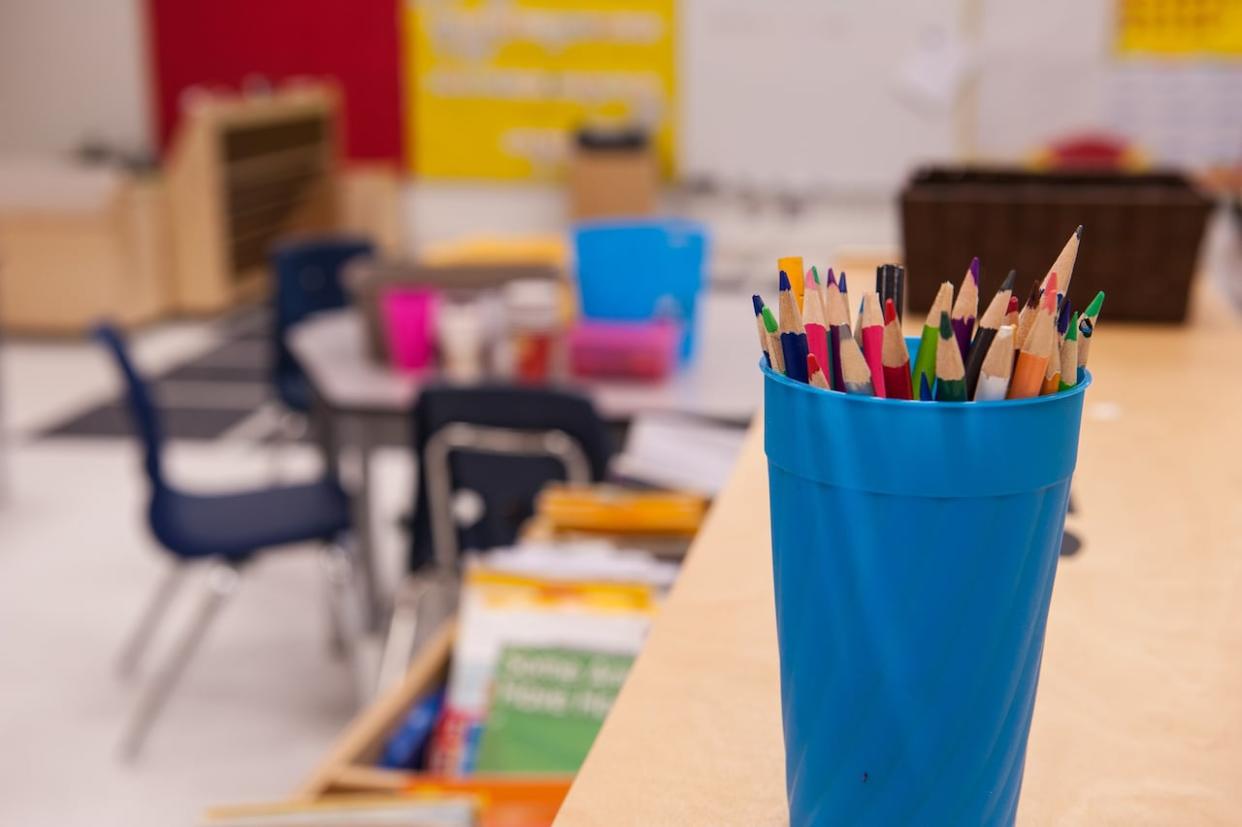Sask. trans students outed to peers by tech company error

A tech company is apologizing after trans students were "outed" to their classmates because of an data error that affected eight school divisions in Saskatchewan.
Edsby is an online portal meant to help teachers, parents and students communicate. Students can use it before the school year begins to take a look at their timetables and see whether they have any classes with friends.
Earlier this week, a Saskatoon parent discovered her transgender son was deadnamed on the platform. Deadnaming is when a transgender person is called by their birth or legal name, rather than the name they identify by.
"[My son has] gone through all of high school as a boy, so here he is in his last year — outed," Monika said. CBC has agreed not to use Monika's last name because she wants to protect the identity of her 17-year-old son.
She said her son called out for her in distress when he first found out. His friends had seen that he was identified on the portal by the name he was given at birth — a name that doesn't align with his gender and one that he stopped identifying with before high school.
Monika said her son seemed to emotionally crash when this happened. This exposed him to his peers without his consent, making him vulnerable to bullying or other harm. She said calling a trans person by their deadname or misgendering them is devastating and humiliating.
Her son and his friends realized that several students' chosen names had been replaced with their legal ones.
"They were instantly traumatized, they were thrown into crisis," Monika said.
She immediately started making calls, trying to figure out how to have the names corrected and learn who was responsible. She wondered if it was a directive from the provincial government, which just announced new polices that target LGBTQ youth.
"Parents who are supportive, and have unconditional love for their trans kids, need to be very vocal for the kids who don't," Monika said.
Students affected in 8 school divisions
On Friday, Edsby took responsibility for what had happened, citing a technical glitch that affected all students who go by a different name at schools in eight Saskatchewan school divisions.
"To anyone who feels outed by this data error, we apologize deeply. Edsby takes your student data security very seriously and supports your preference to identify as you choose," said a company spokesperson in a written statement.
There was an issue in the synchronization between Edsby and MySchoolSask, the provincial system that Edsby draws information from, according to Edsby.
It says MySchoolSask distinguishes between what school districts call "preferred first names" and "legal first names." Edsby then displays students' chosen names in all places where other students can see. Educators can see both names and parents only see their child's legal first name.
The glitch occurred on Aug. 10, 2023, but Edsby did not learn of the problem until Thursday, when students began noticing issues and the company was called out.
The Edsby spokesperson said the company "regrets the poor timing of this issue, given Saskatchewan's new parental consent requirements."
Error happens as pronoun policy announced
On Tuesday, Saskatchewan's education minister announced a new policy dictating that students under the age of 16 who want to change their pronouns or names must obtain parental consent. Minister Dustin Duncan has said this is meant to increase "parental involvement."
The government said Thursday that the change is "not being applied retroactively."
Listen to Duncan being interviewed about the changes by Morning Edition host Stefani Langenegger:
Experts and advocates have said the new policy puts queer youth at risk.
As students get ready to head back to school, Monika fears for trans youth.
"As a parent, my child is lucky that I, and his father and his siblings, we'll always advocate for him," she said. "But it's really easy for trans youth and trans kids to be thrown under the bus if they don't have that."
Monika said there are many trans children who don't have supportive parents and that makes forced parental consent a safety issue.
"Parental consent only works if you're supporting your child, not controlling your child."


